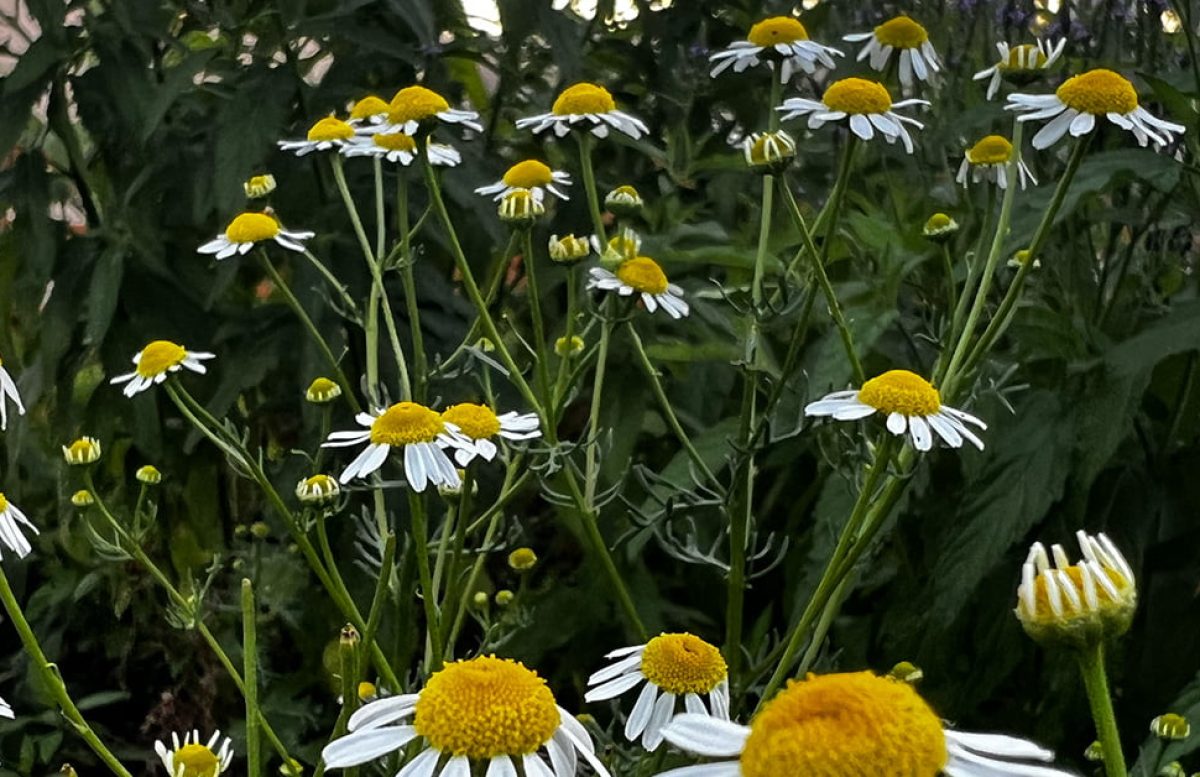Chamomile is a plant that has been used for centuries for its calming and soothing properties. It is native to Europe and Asia, and is now grown in many parts of the world. There are two main types of chamomile: German chamomile (Matricaria recutita) and Roman chamomile (Chamaemelum nobile). Both types are used in traditional herbal medicine, and are believed to have similar properties.
Chamomile has a variety of herbal actions, including being an anti-inflammatory, antispasmodic, and mild sedative. It is often used to help with sleep, anxiety, and digestive issues. It is also used topically to help with skin conditions such as eczema and dermatitis.
In folk medicine, chamomile has long been associated with calming and soothing effects. It is often used as a natural remedy for stress, anxiety, and insomnia. It is also thought to have mild pain-relieving properties, and has been used to help with headaches and muscle pain.
In terms of energetics, chamomile is considered to be a cooling and drying herb. It is believed to have a calming effect on the body and mind, and is often used to help balance out excess heat or inflammation.
There are many ways to take chamomile, including drinking it as a tea, using it in tinctures or capsules, or applying it topically as an oil or cream. It is generally considered to be safe and well-tolerated, although it is possible to have an allergic reaction to the plant. As with any herb or supplement, it is important to consult with a healthcare provider before adding it to your routine.
Overall, chamomile is a gentle and versatile herb that has a long history of use in traditional medicine. Its calming and soothing properties make it a popular choice for helping with sleep, anxiety, and digestive issues, and it may also have mild pain-relieving and anti-inflammatory effects.
CHAMOMILE (Matricaria recutita)
Family: Asteracea
Parts Used: Aerial parts/Flower.
Taste – Sweet (light infusion, Signifies the connection to the nervous system)
Aromatic (the volatile essential oils of the plant (caminative & supports digestions)
Bitter (Digestive stimulant)
Actions
Bitter Carminative – Increases Digestive secretions, Expel excess gas. Nervous system is central to digestion (Parasympathetic)
Nervine Relaxant/sedative – Gently cuts the edge off, Calm & sedate over active nerves (won’t induct drowsy & sleepy) Great for kids & Adults.
Spasmolytic – Relax tension & spasms in the abdominal region. (Smooth Muscles) (Gut & Uterus)
Affinites: Digestive System – Used for stimulating digestive secretions in the stomach.
Nervous system – Specific for Calming the nerves.
Muscles- Smooth muscles.
Energetics: Qualities
Cooling – Sedates heat & excitation in tissues. It brings the energy down.
Drying – Long term use will have a drying effect on the constitution. Increases secretions that are ultimately leaving the body.
Relaxant – Critical factor (Amazing gentle yet strong quality)
Excess Pitta & Vatta specific – relaxant (releases tension) (Heat & Tension)
Specific Indications:
This plant is a wonderful ally for children due to its gently calming properties. Chamomile is specific for those who have tantrums and are especially fussy or whiny, but can also be utilized by child or child adult alike to harmonize digestion or encourage a peaceful mood. In this stressful, fast paced world, it is a gift to have a plant like this around to bring an air of ease into a busy day. Like a warm hand at your back, Chamomile is akin to a mother reminding you that everything is going to be okay.
Matthew Wood:
They whine, complain, piss and moan around, want someone else to fix it and won’t do anything about it themselves. On the other hand, they can be fussy and hyper-reactive to situations, especially anger. It’s as if they are just waiting for some little thing to trigger them to either be angry about or complain about. I often think of Chamomile for adults that were spoiled as kids, didn’t really learn how to grow up or do things on their own, and are really dependent on others to get things taken. care of.




